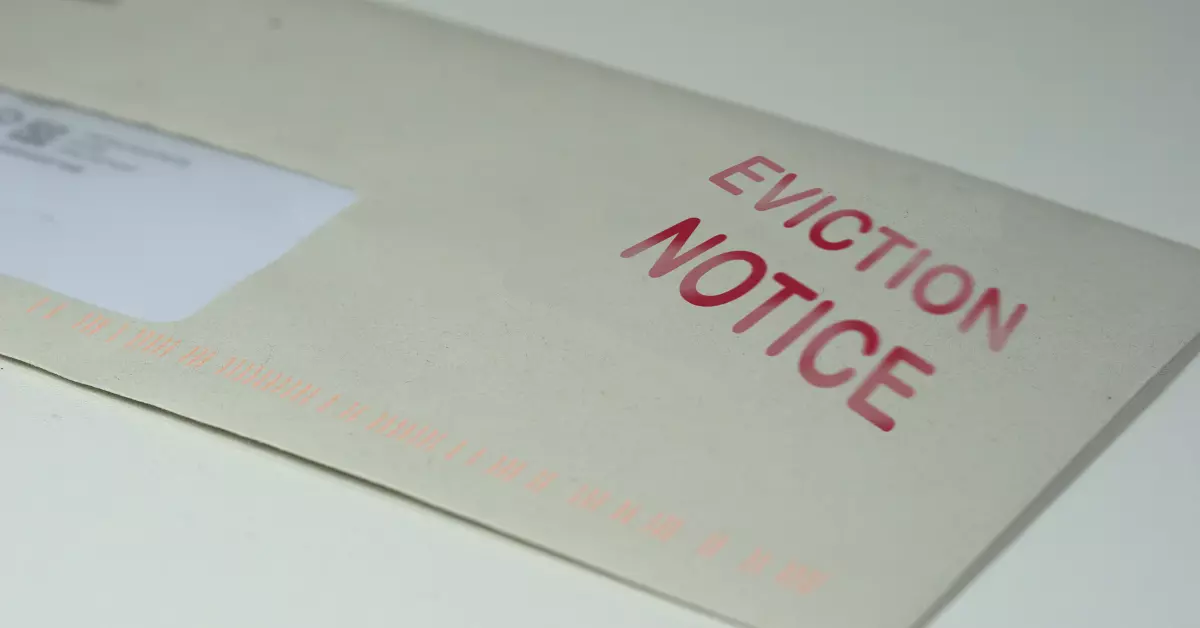Can You Evict a Tenant in Scotland? – Rental Awareness
Yes, you can evict a tenant in Scotland. The eviction process involves following specific legal procedures and obtaining the appropriate court order.
If a landlord intends to evict a tenant in scotland, they must follow the correct legal process. This usually involves serving the tenant with a notice to quit, followed by a notice of proceedings, and obtaining a court order outlining the details of the eviction.
The eviction process can be complicated, and it is critical to ensure that all legal procedures are followed correctly. The law in Scotland provides tenants with several protections, including the requirement that a landlord must have a valid reason for termination.
Failure to comply with these regulations could lead to legal consequences for the landlord. It is recommended that you seek legal advice before commencing any eviction proceedings.

Can You Evict A Tenant In Scotland: Understanding The Basics
If you’re a landlord in scotland, you might have found yourself in the difficult position of needing to evict a tenant. Perhaps the lease has expired, the tenant has broken the rules of the tenancy agreement or rent is unpaid.
Whatever the reason, it’s crucial to follow the correct legal processes to ensure a smooth eviction. We’ll explore the basics of evicting a tenant in scotland.
The Eviction Process In Scotland: An Overview
Evicting a tenant in scotland can be a complicated process. Here are the key steps you need to take:
- Serve the tenant with the proper notice, giving them a specific timeframe to vacate the property.
- If the tenant refuses to leave, you can apply to the first-tier tribunal for scotland (housing and property chamber) for an eviction order.
- If the tribunal grants the eviction order, you can enlist the sheriff officers to physically remove the tenant from the property.
Every case is different, but this gives you a general idea of the process involved.
Grounds For Eviction: What Is Acceptable Under The Law
You can’t just evict a tenant for no reason. There are specific grounds for eviction that you must adhere to, including:
- The tenant is in rent arrears for at least three consecutive months.
- The tenant has broken the terms of the tenancy agreement, such as subletting the property without permission.
- The tenant has caused damage to the property or is engaging in antisocial behaviour.
- The tenant has been convicted of a crime, and the landlord is lawfully obliged to evict the tenant.
You can’t evict a tenant without reason, and it’s crucial to have evidence to support your case.
The Various Types Of Tenancies And How They Affect Eviction
Different types of tenancies have different rules regarding evictions. Here are some of the most common tenancy types in scotland, and how they affect the eviction process:
- Short assured tenancy: This type of tenancy is for private sector landlords and is governed by the housing (scotland) act 1988. If you want to end a short assured tenancy, you must serve a section 33 notice to quit. The tenant then has two months to vacate the property, or you can apply to the tribunal for an eviction order.
- Assured tenancy: This type of tenancy is similar to short assured tenancies but has some differences, e.g. It can be ended in some cases by the landlord selling the property. Assured tenancies require a section 33 notice to quit as well.
- Private residential tenancy: This type of tenancy was introduced in 2017 and replaced short assured tenancies. It’s a more flexible and transparent tenancy agreement but requires a notice to leave instead of a notice to quit. The tenant has 28 days to leave, and if they do not, the landlord can apply to the tribunal.
- Social housing tenancy: This type of tenancy is for council or housing association properties and is regulated by the housing association or local council involved, usually leading to a more drawn out process.
It’s essential to understand the type of tenancy agreement you have and how the eviction process differs for each one.
By understanding the basics of evicting a tenant in scotland, you can make the process more manageable while ensuring you abide by all the legal guidelines. Although evicting a tenant can be a stressful process, it’s important to act lawfully to avoid any potential legal issues down the line.
Understanding The Housing (Scotland) Act 2014
Evicting a tenant is never an easy task, and the process can be even more complicated when you’re dealing with Scottish property law. Understanding the housing (scotland) act 2014 is critical if you’re a landlord looking to remove a problematic tenant.
Let’s take a closer look at the key provisions of the act relating to eviction, as well as how it has impacted eviction rates and tenancy agreements.

The Key Provisions Of The Act Relating To Eviction
The housing (scotland) act 2014 made significant changes to the eviction process for scottish landlords. Here are the key provisions of the act relating to eviction:
- There are now 18 grounds for eviction, which include rent arrears, antisocial behavior, and criminal activity.
- The eviction process is divided into two stages – serving notice and applying for an eviction order.
- Landlords must serve tenants with a notice to leave, which must specify the grounds for eviction, the date they must leave by, and how to challenge the eviction.
- If the tenant doesn’t leave or challenge the eviction, the landlord must apply to the first-tier tribunal for scotland (housing and property chamber) for an eviction order.
- The tribunal will consider both the landlord’s and the tenant’s positions before deciding whether to grant the eviction order.
How The Act Has Impacted Eviction Rates And Tenancy Agreements
The housing (scotland) act 2014 was designed to provide greater protection for tenants while also making it easier for landlords to evict problem tenants. Here’s how the act has impacted eviction rates and tenancy agreements:
- The number of private sector evictions has increased since the act was introduced, reflecting the increased ease with which landlords can evict tenants.
- However, the act has also made it more difficult for landlords to evict tenants on certain grounds, such as the tenant being in rent arrears due to a welfare benefit shortfall.
- The act has also introduced changes to the types of tenancy agreements available, such as the private residential tenancy, which provides tenants with more security and stability than previous agreements.
While the housing (scotland) act 2014 has made significant changes to the eviction process for scottish landlords, it’s essential to understand the act’s key provisions and how it has impacted eviction rates and tenancy agreements.
By familiarizing yourself with this legislation, you can protect your rights as a landlord and ensure a fair and legal eviction process.
Eviction Notices In Scotland: What You Need To Know
As a landlord, if you are considering evicting a tenant in scotland, it is crucial to follow the correct procedures. Let’s take a closer look at the different types of eviction notices and the legal processes involved.
The Different Types Of Eviction Notices And Their Requirements
There are two types of eviction notices in scotland: notice to quit and notice of proceedings.

Notice To Quit
- This notice is used when a tenant is in breach of their tenancy agreement, such as failure to pay rent or committing an offence on the property.
- A notice to quit must be provided to the tenant in writing, and it should clearly state the grounds for eviction.
- The notice period varies depending on the tenancy type, ranging from 28 days to 84 days.
Notice Of Proceedings
- A notice of proceedings is used to evict tenants who have not breached their tenancy agreement but are being asked to vacate the property by the landlord.
- This notice can only be served once the current tenancy has come to an end, and a new tenancy agreement has not been signed.
- A notice of proceedings must be provided in writing, stating the reason for eviction and the time frame given to leave. The notice period is usually 28 days.
The Legal Processes Involved In Serving An Eviction Notice
Before serving an eviction notice, it is advised to seek legal advice to ensure that the correct procedures are being followed.
- The notice must be provided in writing and delivered to the tenant in person or through a registered post.
- If the tenant refuses to leave, the landlord can apply to the sheriff court for an eviction order.
- The court will schedule a hearing, and the tenant will have the opportunity to defend themselves.
- If the landlord is granted an eviction order, it can only be executed by a sheriff officer.
Evicting a tenant in scotland can be a complex process. It is always advisable to seek legal advice and follow the correct procedures to avoid any legal repercussions.
Frequently Asked Questions On Can You Evict A Tenant In Scotland?
What Are The Reasons For Eviction In Scotland?
Evictions in scotland can only take place through legal procedures and for specific reasons such as rent arrears, damage to property, or antisocial behavior.
How Long Does The Eviction Process Take In Scotland?
The eviction process in scotland can take several months depending on the situation. It involves serving notices, attending court hearings, and obtaining an eviction order.
Can Tenants Challenge An Eviction In Scotland?
Yes, tenants can challenge an eviction in scotland by attending court hearings, presenting evidence, and arguing their case. However, the court will ultimately decide whether the eviction is lawful.
What Are The Consequences Of An Unlawful Eviction In Scotland?
Unlawful eviction in scotland is a criminal offense that can lead to fines, imprisonment, and a criminal record for the landlord. The tenant can also take legal action to claim compensation for any losses they incurred.
Conclusion
Evicting a tenant in scotland can be a complex and challenging process. It requires careful consideration of legal and ethical implications. As a landlord, it is imperative that you follow the correct procedures and seek professional advice if necessary.
By understanding your legal obligations as a landlord, you can avoid costly mistakes and ensure that the eviction process runs smoothly.
While you may face difficult situations such as rent arrears, illegal activities or damage to the property, it is important to remember that tenants also have rights. Thus, it is worth exploring alternative dispute resolution methods before resorting to eviction.
Overall, evicting a tenant in scotland requires careful planning, communication and adherence to the law. Therefore, landlords must always prioritize their legal and ethical responsibilities while seeking the best outcome for both parties.